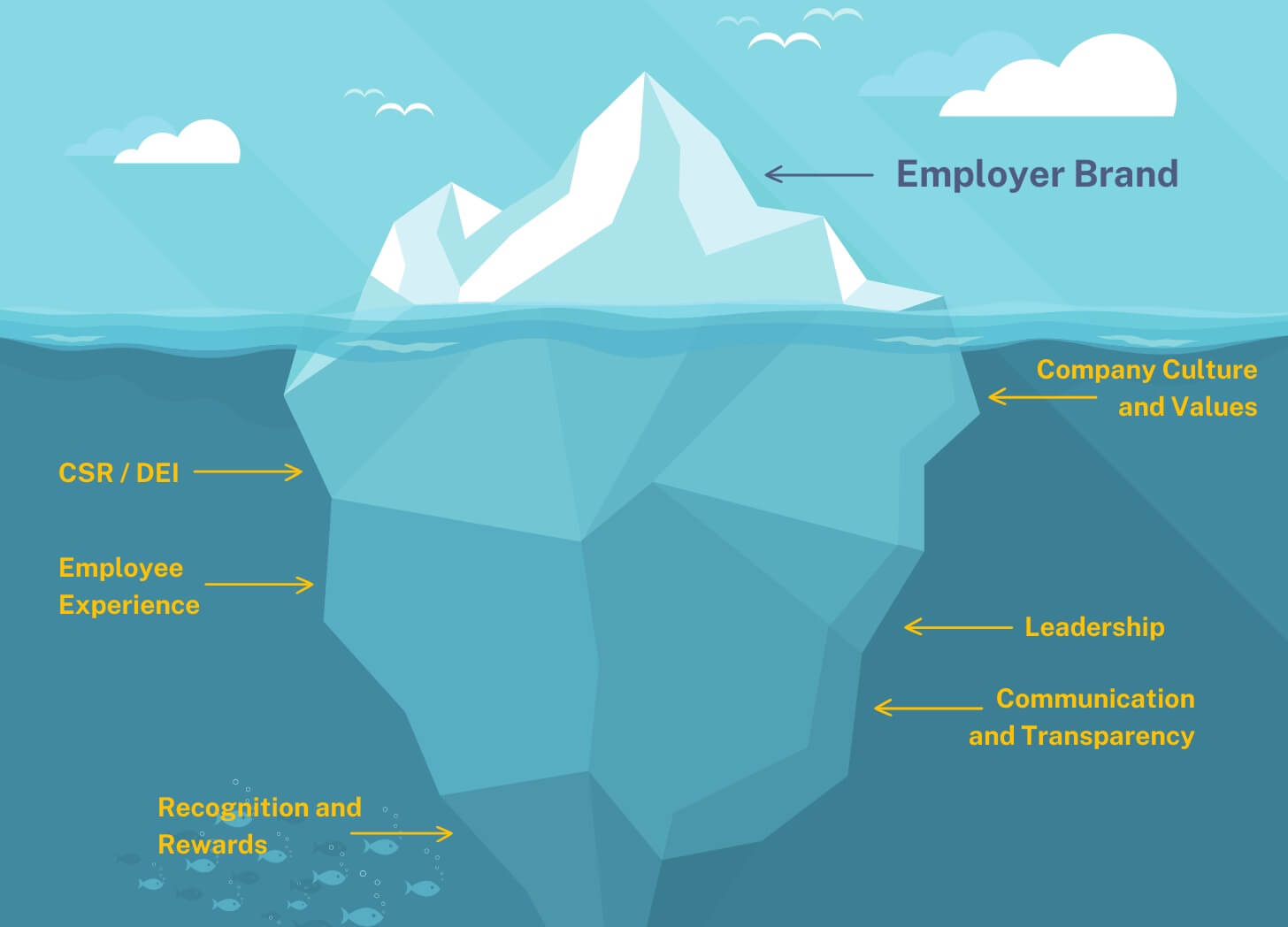I realized a long time ago that the best marketing starts from within. The companies that are most successful with their marketing strategies, are often those that prioritize their internal culture and employee experience.
However, I’ve also encountered situations where, in the course of digging into a company’s operations and talking to their leadership, product, and sales teams, I uncover red flags within their internal culture – employees expressing dissatisfaction, disengagement, cynicism, or a lack of alignment.
Thanks for reading Glass Ball Consulting! Subscribe for free to receive new posts and support my work.Subscribe
In these cases, it pains me to realize that the company’s marketing efforts, no matter how well-executed, will be built on a shaky foundation. It’s obvious to me that to create an authentic, sustainable marketing engine, the company needs to address its internal issues first.
When your employees are happy and engaged, they naturally create better experiences for customers. They bring enthusiasm, creativity, and a genuine passion for your brand to their interactions. On the flip side, when employees are disengaged or unhappy, it inevitably shows in their work. They may go through the motions, but they lack the authenticity that truly connects with customers. No amount of external marketing can compensate for a poor employee experience.
But the impact on your ability to recruit the best talent is even more concerning. Consider this: 69% of candidates would reject a job offer from a company with a bad employer brand. Let that sink in for a moment. More than two-thirds of potential employees would rather walk away from a job opportunity than work for an organization with a poor reputation as an employer.
This finding underscores the power of employer branding. Investing is no longer optional – it’s a business imperative. While a strong, positive employer brand helps to attract top talent, it also has a significant impact on a company’s ability to retain the best employees. Ignore it at your peril – a negative employer brand can be a major liability, costing companies valuable candidates and damaging their overall reputation.
But what exactly constitutes a “bad” employer brand? And how can companies proactively manage and improve their reputation as an employer? First, you’ll want to do the work to develop a compelling (and true) Employee Value Proposition (EVP).
A strong EVP is the foundation of your employer brand – it defines what makes your company a great place to work and sets you apart from competitors. Creating an effective EVP requires deep introspection and collaboration across your organization. It’s not just a job for HR or marketing – it requires buy-in and input from leadership, managers, and employees at all levels. Unfortunately, in many companies, the responsibility for employer branding falls into a gray area between departments, with no clear owner or strategy.
This lack of clarity can be dangerous. Without a cohesive strategy, your company risks sending mixed messages to candidates and employees. You may struggle to attract the right talent, or worse, you may attract candidates who are a poor fit for your culture. Inconsistent or inauthentic employer branding can also erode trust and engagement among your current employees. And, as I’ve already mentioned, it sabotages your external marketing as well.
So how can you create a compelling EVP and employer brand? The key is to approach it as a strategic initiative, with clear ownership and accountability. Whether you choose to tackle it in-house or bring in external support, the process should involve:
- A thorough audit of your current employer brand, including employee surveys, online reviews, and current recruitment marketing materials.
- Cross-functional workshops to align stakeholders and define your EVP.
- A comprehensive employer brand strategy that brings your EVP to life across all touchpoints.
- Training and support to help your teams effectively communicate and live your employer brand.
Engaging an experienced employer brand strategist can provide valuable objectivity and expertise to guide you through this process. However, it’s equally important to ensure that your internal teams are fully bought in and engaged. Building a strong employer brand requires ongoing effort and commitment from your entire organization.
Some key principles to keep in mind:
- Reinforce your EVP and values at every turn. It’s not enough to simply slap these on your website – you need to integrate them into your people programs, hiring and evaluation criteria, rewards and recognition systems, corporate communications, etc. When brand values become a practical operating model, not just rhetoric, that’s when they can have a true impact.
- Put your people at the center. Your employees are the most credible ambassadors for your employer brand. Showcase their voices and experiences across multiple channels – on your careers site, social media, marketing collateral, candidate communications, etc.
- Lead with authenticity. Don’t sugarcoat things or make promises your culture can’t keep. Be transparent about your strengths as well as the areas where you’re still growing. Honesty builds trust.
- Engage your team as active participants. Create meaningful opportunities for your people to co-create your employer brand.
- Treat your candidates like top-tier prospects. Design and deliver an exceptional candidate experience at every stage of the application process.
Cultivating a powerful employer brand is no small undertaking. It requires deep introspection, employee participation, cross-functional coordination and sustained effort over time. Slogans and cosmetic fixes alone won’t cut it. But for organizations willing to invest in the authentic, inside-out approach, the competitive advantages are immense.
Top talent will always have their pick of opportunities, so you need an engaging employer brand to stand out. And as we all know, the job market continually fluctuates – building a positive brand perception now means you’ll be strongly positioned to attract the best people when hiring inevitably gets more competitive again. With commitment, collaboration and a strategic approach, any company can build an employer brand that truly sets them apart and powers their business success for years to come.


